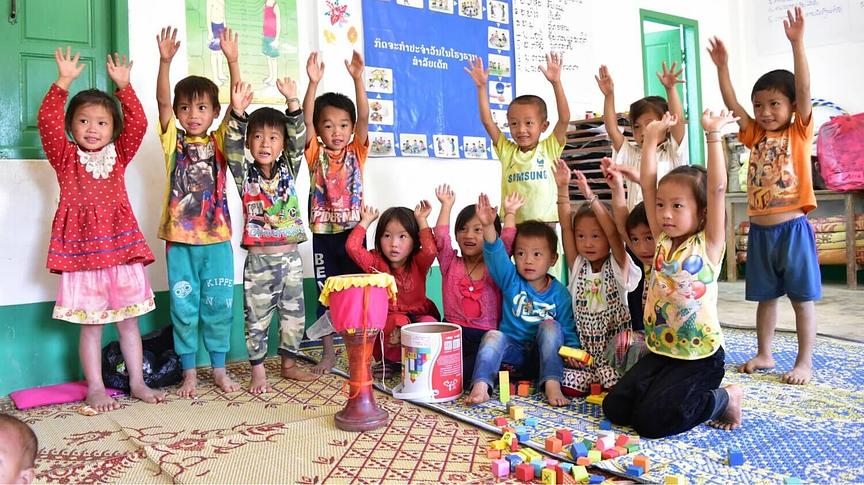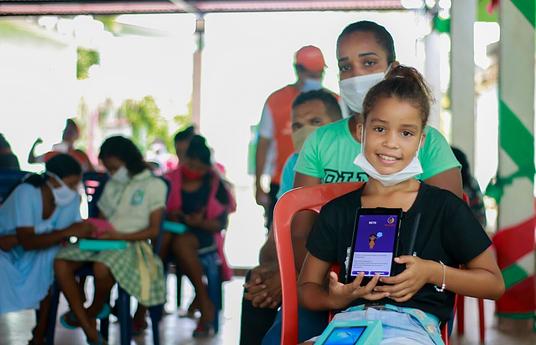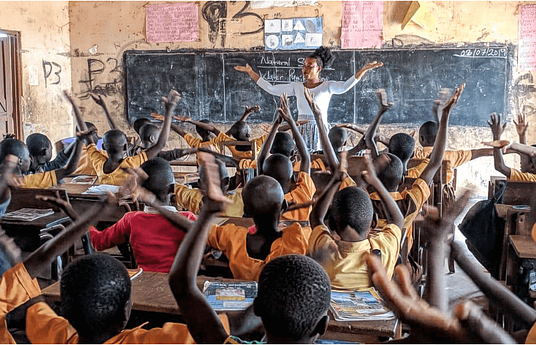Progress in universalizing pre-primary education has been slow and uneven leaving an estimated 175M young children with no access. The situation is worse in developing countries and in remote, rural communities. ASRP helps children from these communities who have no PPE experience and about to enter grade 1. ASRP supports their holistic development so they are ready for, stay & thrive in school.
ASRP is an 8–12-week accelerated program that helps disadvantaged children without prior access to pre-primary education to better prepare for grade 1 entry and success. It was developed by Mother Child Education Foundation (ACEV) based in Turkey and replicated by Plan International in Laos, Tanzania & Cambodia. It includes holistic child development activities in a gender-responsive and inclusive learning environment; parent education and outreach; nutrition and hygiene activities. It focuses on the development of children's physical, language, cognitive and social-emotional development skills of children. It includes 200-250 hours of classes, divided into 4-5 hours a day, five days a week, and is implemented during the long school break preceding the start of the new school year. It is taught by grade 1 teachers, supported by headteachers, and is conducted in any safe, secure location identified by community leaders. It has a curriculum that can be contextualized for each country.
The evaluation of the ASRP pilot-tested by Plan International in Laos found that ASRP not only improved the numeracy, literacy, and vocabulary of children but also increased on-time enrolment and completion in grade 1. As a result of successful pilot testing and advocacy by Plan International, the Lao PDR Ministry of Education has recognized ASRP as an effective model and included it as an alternative strategy for reaching children who have had no access to PPE as part of its new Education Sector Development Plan. Based on this success, ASRP is now being contextualized and scaled in Cambodia and Tanzania, under the LEARN+ project supported by GPE Knowledge and Innovation Exchange (KIX), a joint endeavor between the International Development Research Center and GPE.
Plan International and ACEV Turkey, have developed ASRP program materials and tools that can be contextualized to other countries to align with the country's PPE program standards and approaches. Education stakeholders who are interested in this innovation are encouraged to reach out to Plan International Canada and ACEV.



